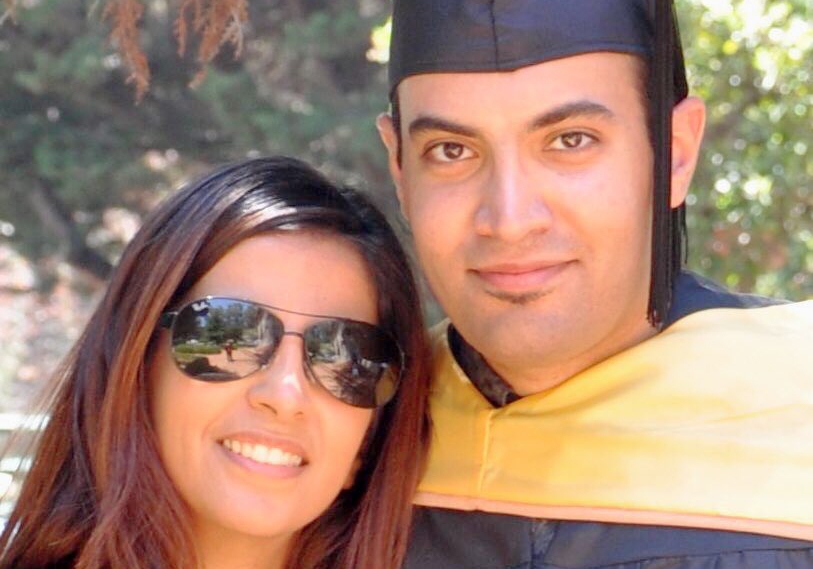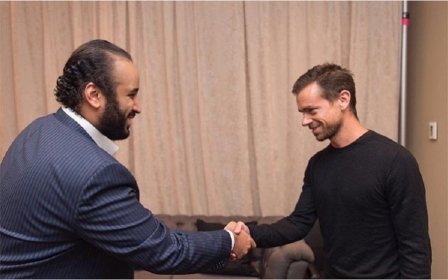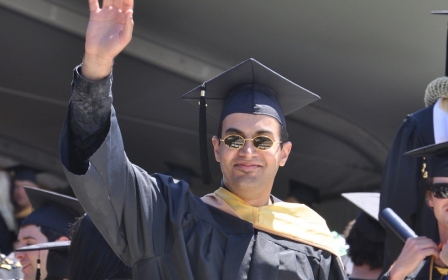Sister of Saudi Twitter spy victim urges Google to halt cloud project

The sister of a Saudi aid worker, who was forcibly disappeared and sentenced to 20 years after his Twitter data was allegedly leaked to authorities, is urging Google to scrap plans for a cloud region in the kingdom.
Abdulrahman al-Sadhan's experience alone should be a cautionary tale to tech companies over the lengths to which Saudi Arabia will go to obtain the private data of its critics, Areej al-Sadhan told Middle East Eye.
"Instead of Saudi Arabia having to send someone to spy from a company in the US like they did with Twitter, they have it right there in their home which makes their work much easier to spy and hack people," she said. "That scares me so much."
Her comments were made ahead of a vote on a resolution brought by six investors in Alphabet, the parent company of Google, tabled for this Wednesday's annual shareholder meeting.
The resolution, which Alphabet tried unsuccessfully to block, calls on the company to release a human rights risk assessment and mitigation strategy for the data centre it plans to open with Saudi Aramco in the eastern city of Dammam.
The shareholders who authored the resolution, along with digital rights advocates, say the company needs to be clear about how it will keep data secure in the kingdom.
They specifically worry that personal data could be leaked either through employees compelled by the government to act on its behalf or through the government appealing directly to Google.
They say their questions about how these risks will be mitigated have gone unanswered for over a year and one example of their concerns which repeatedly comes up in conversations is the case of Abdulrahman al-Sadhan.
'The hand you tweet with'
Abdulrahman, then 34, was arrested in March 2018 from the Red Crescent offices in Riyadh where he was working. His family didn't know for certain where or how he was - or if he was alive - until February 2020 when he was allowed a brief phone call.
His personal information is believed to have been among that of more than 6,000 Twitter users whose data was allegedly shared in 2015 with Saudi officials by two former employees in exchange for money.
Other targets of the spying campaign detailed in a legal complaint filed in 2019 include Omar Abdulaziz, who was a close colleague of slain journalist Jamal Khashoggi, and Turki bin Abdulaziz al-Jasser, a journalist who was arrested and disappeared at the same time as Sadhan.
Abdulrahman had been using political satire and humour on Twitter to draw attention to issues in the kingdom, including unemployment and taxation without representation, and calling for democracy.
'The risks are not taken seriously until the damage happens. We take this very seriously because we've seen the level of damage'
- Areej Al-Sadhan
Twitter has previously declined to comment on Al-Sadhan's case specifically, but said it had acted swiftly to cut off access to "malicious actors" when it learned about the breach and notified affected account holders.
After his arrest and forcible disappearance, Abdulrahman was held in a secret prison and brutally flogged and tortured with electric shocks. He ended up in an intensive care unit for several days, his sister said.
"They broke his hand and fingernails and said, 'This is the hand you tweet with'," Areej al-Sadhan told an audience at last week's Oslo Freedom Forum.
In February 2021, with visible signs of abuse on his body, Areej said, Abdulrahman was sentenced in the Specialised Criminal Court to 20 years in prison, followed by a 20-year travel ban on charges related to his online activism. His sentence was upheld on appeal.
He is believed to have been in solitary confinement since he was arrested.
If Google's cloud region opens in Saudi Arabia as planned, Areej said she would stop using the company's apps because she would be afraid that Saudi authorities would eventually obtain her data.
"Imagine they have access to my movements, my personal details, my personal life. That means they can find me anywhere and kidnap me," she said. "It's not going to stop them that I'm here in the US."
She said she wasn't sure if Alphabet was fully aware of the constant state of danger she said that she and other Saudis feel they live under, trying to predict what Saudi authorities might do next.
"They don't respect human rights. They don't respect any company's rules or regulations," Areej said. "The risks are not taken seriously until the damage happens. We take this very seriously because we've seen the level of damage."
Middle East Eye propose une couverture et une analyse indépendantes et incomparables du Moyen-Orient, de l’Afrique du Nord et d’autres régions du monde. Pour en savoir plus sur la reprise de ce contenu et les frais qui s’appliquent, veuillez remplir ce formulaire [en anglais]. Pour en savoir plus sur MEE, cliquez ici [en anglais].





